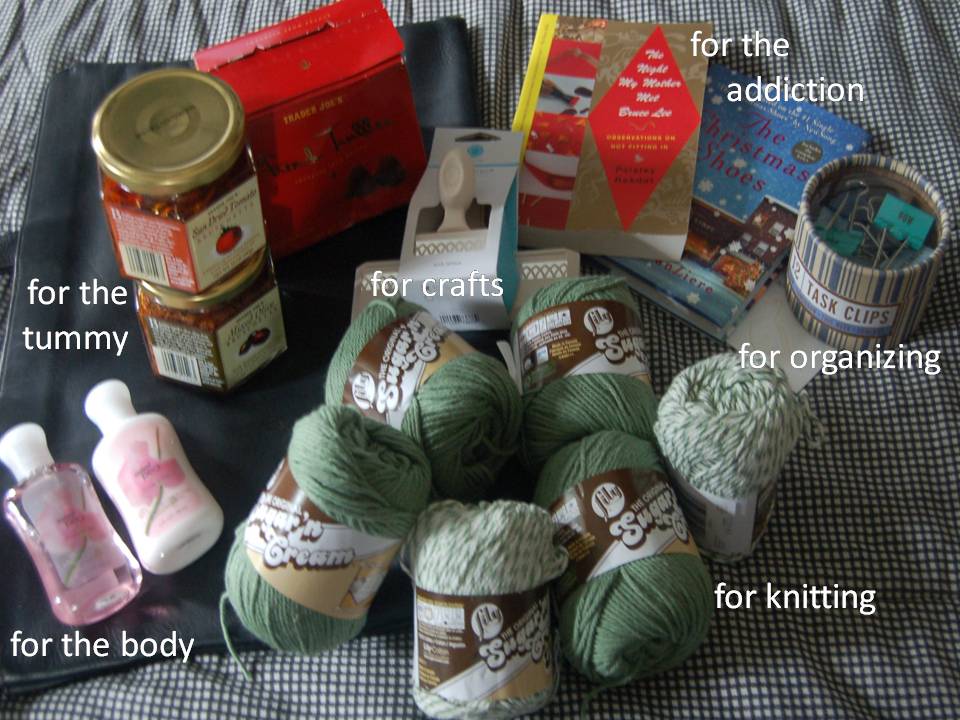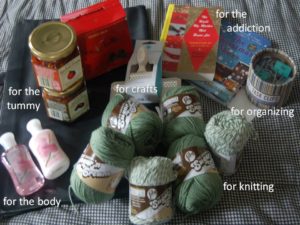I am Gege. And okay, I admit it now, I am addicted to books. And book buying. And my husband does not like it. But confessions are necessary. And therapeutic. So, I’m showing here the view from under my desk where the recent loot is in temporary confinement until my husband goes out to play golf. When I, away from his prying eyes and judging heart, can put them into their rightful alphabetical places.
Shhh, don’t tell my husband.
Author: gege
Somebody Loves Me


We knew about Claude Tayag — artist, columnist, and chef. Whipping up an amazing lunch, a degustacion that had food gluttons raising their little white towels in surrender, Chef Tayag certainly didn’t disappoint.
But the surprise was Mary Ann, Claude’s wife. Stylish, gracious, and entertaining, she elevates party hosting to an art.
Of course, the most pleasant surprise is Bale Dutung itself. You enter an unassuming suburban village to get there. Then once you cross the Tayag’s gate you step into a rustic restaurant slash house slash gallery slash nature wonderland. A house filled with art, antiques, and creative ideas that salute Philippine food and culture.
And the food — I honestly have never been that stuffed in my whole life. Slooooow food at its finest — almost 5 hours. And well worth the time and the trip. (Of course, I’m not with the party that got caught in the flash flood and the 5-hour traffic jam on the way back, so I can say that.)
Resto review to follow. In the meantime, enjoy the photos at: http://islandhopper.multiply.com/photos/album/38
A Dr. Seuss Sunday
Yippee. Yoohoo. ‘twas a Sunday!
A fine, fun Sunday, I may say
A fine day to catch up on sleep
And to read something not too deep
So I looked through my shelf
For a book I could choose
Then I thought to myself
How about Dr. Seuss?
Dr. Seuss. Dr. Seuss. He’s cool. He’s fun
And Flippers say for July he’s the one
 I know, I know, some will be shocked
I know, I know, some will be shocked
That I read a book about (gasp) a cat
For cats are creatures that make me say yuck
I will never like them, no matter what
This particular cat
Knows how to have fun
He brings out of the box
Thing two and thing one
This cat makes a huge mess
And gives the kids so much stress
It gives the fish a huge fright
When it lets the Things fly kites
This particular cat
Has a machine that sweeps things
Oooh, I want something like that
A gadget so amazing
But the amazing thing is this
Dr. Seuss wrote this charming piece
With the same two hundred twenty words; that’s all.
So this poem can be read by kids, big and small.
When I was done with the story
Of this cat that’s naughty and feisty
I guess I had to admit
This cat is not all that yucky  As my Sunday went on
As my Sunday went on
So did my Dr. Seussathon
Book two was Green Eggs and Ham
About a creature named Sam-I-Am
Though the poem sounds rather silly
And funny with a bit of whimsy
It has a lesson to preach
About living a life more rich
Get out of your comfort zone
Is the message of the book
Venture into the unknown
Try things, taste stuff, take a look
Dr. Seuss says for us to grow
Don’t say no to what you don’t know
Don’t knock it until you’ve tried it
Don’t give yourself silly limits  Then it was time for book number three
Then it was time for book number three
This time, ‘twas something rather scary
What Was I Scared Of? was the next tome
This is now my fave Dr. Seuss poem
It tells us not to be afraid
Of things and folks that are unusual
We’re all just differently made
And that’s what makes us special
We need not fear
Of the strange and queer
Don’t be afraid too
Of things that are new
Then I took a break
From all the poetry
To read Theodore Seuss Geisel’s
Short biography
I learned he’s American
With traces of German
He majored in English
To be a teacher was his wish
Then he fell in love with Helen
Who became his travel companion
And it was in 1957
When Cat in the Hat became a sensation
I was also to discover
That Dr. Seuss won a Pulitzer
For giving his life to educating
And making reading entertaining
My Sunday was drawing to a close
But before I rest and finally doze
There was another book to read
The last of Dr. Seuss indeed  You’re Only Old Once
You’re Only Old Once
Is a book for obsolete children
This was one of the last books
From Dr. Seuss’s fabulous pen
This is a bit depressing
As Dr. Seuss tells of the stressing
Hospital visits, doctor hopping
Waiting room waiting, medicine popping
Yet it’s still full of humor
And you wish Dr. Seuss could have lived more
To write more about cats and whatnots
Green eggs and other silly plots
So that’s my Dr. Seuss bookfest
What a great way to de-stress
I felt truly truly blessed
Dr. Seuss, you are the best!
PS: After composing this, I have new found respect for Dr. Seuss. This was hard. I had to use an online rhyming dictionary to get this done. And after trying to work out a semblance of a meter, I just gave up at the end.
There is no problem with using “Hello” or “Hi” in writing your business email. Business writing is about writing as you would speak. Effective business writing is about building rapport. Hello and Hi are natural and friendly words to greet your readers in a manner that is less formal than the Dear _____, salutation you use for traditional letters. If the circumstances and the audience are appropriate, go ahead and use them.
Of course, this greeting is best used for readers you can call by their first names. Drop the formal titles of Mr., Mrs., and Ms.
The problem we normally encounter with using such greetings is the way we punctuate them.
Some people write it this way:
Hi Dennis,
They think that since this is as a substitute for Dear ___, we should follow the punctuation. Insert loud and irritating buzzer sound here to indicate it’s wrong.
The proper way to punctuate this salutation is this:
Hi, Dennis.
This follows the punctuation rule of enclosing in commas the name of the person you’re writing to. For example:
Yes, Sammy, we will meet on Saturday.
No, Carol.
So, my dear readers, hello and goodbye for now. I hope to be back here soon.

Had a real nice dinner with a girlfriend last night. And we know that when two or more women gather, the discussion inevitably leads to the topic of men. And this is the question that we deliberated on last night. I am interested to know what others think. Please comment. Share your passionate views.
The question is: Do real men use the poof to clean themselves in the bath or shower?
I will share my views after hearing from you.
A Message from Grammar Pulis

 I am alive. I am still fighting the good fight. I have infiltrated a den of grammar bandits involved in everything from minor punctuation misdemeanors to gruesome language murders. Some crimes are truly heinous.
I am alive. I am still fighting the good fight. I have infiltrated a den of grammar bandits involved in everything from minor punctuation misdemeanors to gruesome language murders. Some crimes are truly heinous.
Yes, I’m back to teaching sophomores. There are not enough doughnuts in the world to make grammar pulis’s job easier.
I will be back. Please be patient with me.

Do Hard Things, for me, is a hard read.
You see, I don’t like doing hard things. Yea, who does? But I think my aversion to doing hard things is above the average. I’ve spent my life running away from hard-to-do things. Sometimes some people do not believe me when I say I’m lazy because they see me involved in so many things. And when I’m really passionate about something, I work hard and work excellently. But I’m very selective about the things I do, focusing on things I love, I enjoy, I naturally excel in, I care about, or at least things that would bring me instant gratification. And even with those things, I always manage the degree of difficulty.
So when I read the blurbs inside the book – a lot of things about a lot of hard things – I literally put it down and eyed it as if it was the mother source of the H1N1 virus. I just didn’t want to hear/read any of it. I didn’t want to be challenged, to be goaded to do hard things, things that will make me sweat, get my hands dirty. I don’t want to do anything that would make me look stupid, incompetent. No, thanks. I like my life just the way it is. Cushy, fun, easy.
So the first hard thing I had to do was to pick up the book again and force myself to read it. The next hard thing I now have to do is to write about it. That is hard because writing about it forces me to reflect on what I have just read.
One of the things that make this a hard read is that it is really targeted towards teenagers. So, I’m reading this 25 years too late. And whatever message it has for me is a reminder of the things I should have done and shouldn’t have done many years ago. It made me a bit sad that at my age, the hard things are even so much harder to do.
So, if you are in your teens or just about to hit those years, go read this to avoid the regrets. First off, you’re going to learn that this teenage concept is a fairly new one. Ages ago, people were really just divided into two groups – children and adults. Back then, people started taking on adult roles and responsibilities when they were about 15. Child labor laws, though generally positive in intent, somehow extended the childhood stage, and so a new demographic was born. Now, the teen years are supposed to be some kind of vacation just before one gets into real life – adulthood. And vacation may seem like a euphemism for the lost, crazy, angst-filled, dysfunctional years.
How many times have you heard people warn parents about this phase? The phase when the teenagers’ search for identity is usually accompanied by wild, inexcusable but expected behavior and social experimentation. Adults sigh and say, well, what do you expect — they’re teenagers. And they’re supposed to be allowed to waste these 7 or so years drinking, doping, and coupling, basically indulging in spring break type bacchanalia. After all, they have the rest of their lives to get serious. But in the meantime, real life and real responsibilities can wait. One can just hope they pass those wasted years unscathed.
It is this problem of low expectations that Alex and Brett Harris address. They want us to rethink what we think about the teen years. They want today’s young people to rebel against low expectations and reclaim the teen years as the launching pad of their lives. They want teenagers to fight against mediocrity and to do far more than is expected of them. To do the hard things – the ones that take them away from their comfort zones, the ones that won’t give them instant gratification but far reaching and much better rewards.
It’s a message that people need to hear – whether they’re in that target reader age of 13 to 19, or whether they’re parents, teachers, and other youth-influencers. It’s a hard message for the teenagers. It’s a hard message even for the adults because they have to start raising their expectations of the youth. And for some (like me), they too have to learn to do the hard things. It’s a hard message but one worth listening to.
Alex and Brett Harris write well in a contemporary, easy manner as you would expect. I’m glad they didn’t use hip teenage jargon that could have made them sound like they’re trying too hard to sound like the teenagers that they are. A lot of well written, high-impact statements here. My highlighter pen vomited lines and lines on the book, underlining catchy phrases and calls to action that even this old fogey can learn from. I can already see the industry this book will spawn – devotionals, journals, calendars. Rubber bracelets?
The authors are very liberal with examples to inspire and practical tips to apply. Though this is obviously a book written by Christians for Christian readers, the message can be relevant to those of other faiths.
Its audience has its limits though. Even though, they give examples of the experiences of Philippine based youth, the context is most relevant to American or first world youth, those with options. It’s hard to imagine how this message might apply to youth struggling with extreme poverty, youth who have hard things thrust upon them, those who don’t even have the luxury of a real childhood. They do hard things because they have no other choice. As such, you wonder about their chances of redemption. Or maybe I expect too much. Maybe that topic is altogether for another book.
Limited audience notwithstanding, this book is a must read. I wish more young people would read this and be inspired, be alerted to a call to do great things, to excel, to achieve more than what is expected of them, to make a real, lasting difference in the world. But first they have to do hard things. And first, they have to read this hard-to-read but worthwhile book.
Unfinished Song (Literally)
Look outside your window
Step outside your world
Listen to other people
As they share their words
For there’s a world out there
Different from your own
There’s a world out there
Waiting to be known
So step out and learn
Reach out and share
Open your eyes, your ears
Your mind, your heart
For the story of success
Is not played out inside your room
The goal of progress
Is not reached by staying home
If you want world peace
You’ve got to fight the urge to stay
In your little world
Stuck in your good old ways
If you want the world to change
Then you must stir things up
You must move yourself
And reach out
For there’s a world out there
Different from your own
There’s a world out there
Waiting to be known
Flippers are Foodies too
 temporarily posting this here as I ask permission from the image owner, Lord Jit, here: http://www.flickr.com/photos/jityanga/339554347/
temporarily posting this here as I ask permission from the image owner, Lord Jit, here: http://www.flickr.com/photos/jityanga/339554347/
